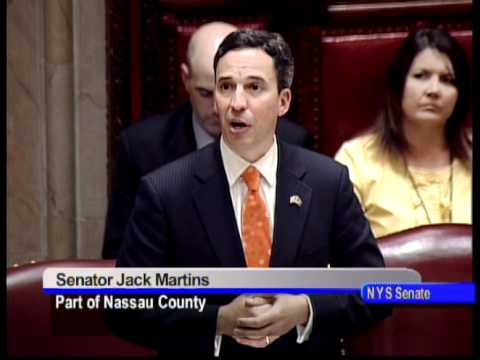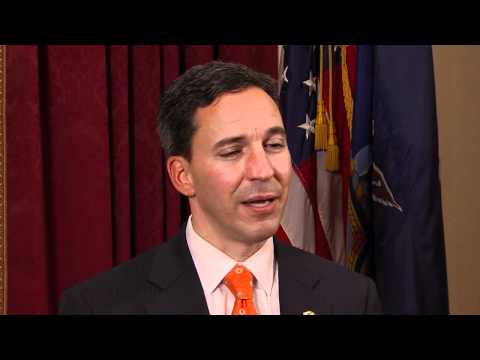From the Desk of Senator Jack M. Martins
Jack M. Martins
May 3, 2011
-
ISSUE:
- Local Government
-
COMMITTEE:
- Local Government
It’s has been an historic past few months in New York State with the passing of this state budget. We kept our commitment to balancing the state’s budget without raising taxes or fees and have taken a significant step toward genuine, long-term fiscal health. However, our work is far from done. We must continue to explore options to ease the tax burden on our residents and business owners.
The Governor and Senate Majority agreed that New York State needed a new approach. We worked together to close a $10 billion budget deficit by reducing our spending to meet our declining revenues. We also agreed to a 2 percent tax cap, since we have reached a point where many of our taxpayers can no longer afford to pay significant tax increases. This bill has since been passed by the Senate and is currently before the Assembly. A cap on real property taxes will give our residents and business owners some much needed relief, which will help to get the economy back on track.
This is not to say that Governor Cuomo’s views and mine are in perfect alignment. For example, the Governor has stated that school districts and local governments can live within the proposed cap by simply exercising greater fiscal discipline and control and dipping into reserve funds, where available. The Governor obviously doesn’t understand the very real pressures that local governments and school districts are facing. Rapidly increasing pension costs are putting an enormous burden on our school districts and local governments. According to the Empire Center for New York State Policy, over the next five years, contributions to the New York State and Local Retirement System (NYSLRS) will more than double, while tax-funded annual contributions to the New York State Teachers’ Retirement System (NYSTRS) will more than quadruple. In addition, School districts and local governments are also saddled with skyrocketing health care costs for their employees.
These escalating costs are forcing local school, village and town boards to ultimately pass those increases on to the taxpayers. We need to begin addressing these costs now, before they continue to spiral to unsustainable levels. It is incumbent upon the Governor and the Legislature to discuss ways to address this issue in a meaningful and effective way. Our future fiscal health depends on it.
While we need to have serious and difficult discussions on pension and health care costs, we must continue to seek ways to provide relief from state mandates. To that end, I recently introduced a bill that will provide relief to school districts in the area of transportation.
Current state law requires school districts to provide one bus seat for every student who is eligible, regardless of whether all those eligible students actually take the bus. The result can often be largely empty, full-sized school buses, where smaller, more efficient vehicles might be employed. The “School Bus Mandate Relief Act” would give school boards the option to provide transportation more closely aligned with their needs.
According to Port Washington School Superintendent, Dr. Geoffrey Gordon, the Port Washington School District could save between $1.5 and $2 million as a direct result of this legislation. This bill, which I am sponsoring along with Assemblywoman Michelle Schimel, is an example of a bi-partisan effort to ease the burden on our taxpayers.
While providing tax relief is of primary importance, we also need to ensure that our residents are protected when it comes to paying for our power use. The Senate recently passed a bill that increases oversight of LIPA by requiring the Public Service Commission to approve any rate increase over 2.5 percent over a 12-month period.
Governor Cuomo recently directed the State Inspector General to conduct an audit of LIPA. On this initiative, I wholeheartedly agree with the Governor. Increased transparency and oversight will only contribute to the fiscal responsibility that LIPA owes its customers.
I am in favor of the same transparency and accountability when it comes to the MTA. This week, the Senate will be holding a hearing to examine ways to reduce the MTA’s annual operating deficits, which have led to fare increases, service cuts and the unconscionable MTA payroll tax imposed by the former Senate Majority and former Governor.
This is indeed a crucial time for our state. We were not elected to make easy decisions, but to make those that will benefit our communities. As always, thank you for the opportunity to serve.



